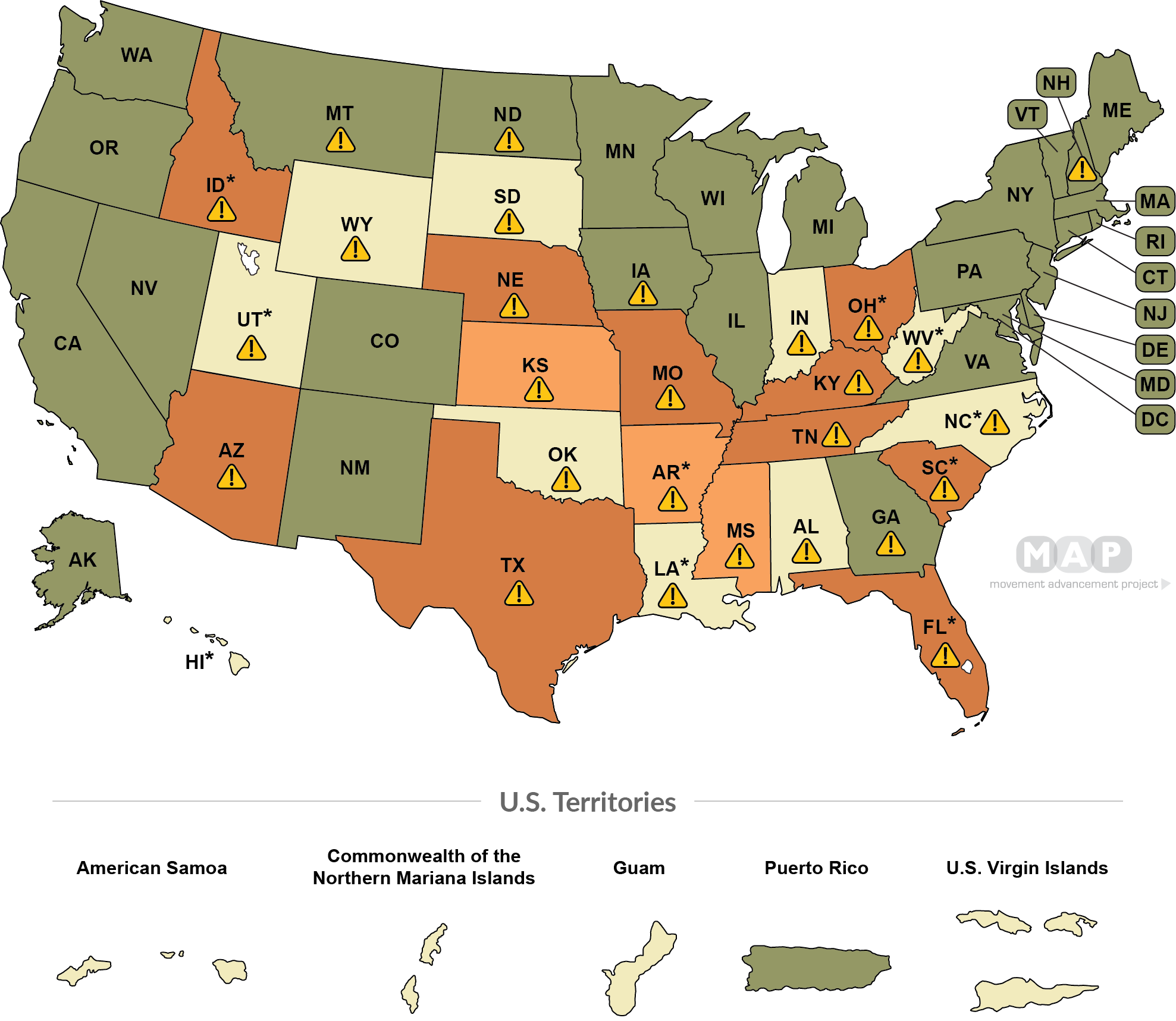*Notes (see also the "Citations & More Information" tab or link below the map legend for more info about every state):
Court rulings:
--In Arkansas, in June 2023, a federal judge blocked the state's ban on best practice medical care for transgender minors, including in the state's Medicaid program. However, the state is appealing the decision. This map will be updated as the case progresses.
--In Florida, in June 2023, a federal judge blocked the state's ban on Medicaid coverage, meaning that transgender Floridians on Medicaid should be able to access medically necessary care. However, the state is appealing the decision. This map will be updated as the case progresses.
--In North Carolina and West Virginia, an April 2024 ruling from the 4th Circuit Court of Appeals found unconstitutional the state's previous exclusions of transgender-related care in its state plans, but the decision is being appealed. This map will be updated as the case progresses.
--South Carolina is also in the 4th Circuit, and so the same ruling affecting North Carolina and West Virginia sets an important precedent, but may require further legal action before South Carolina's exclusion is explicitly addressed.
Other notes:
--In Hawai`i, the state Medicaid policy is unclear. Hawai`i has a law banning gender identity discrimination in health insurance and banning exclusions of gender-affirming care, but the state also has a pre-existing regulation that explicitly excludes transgender-related health care from being covered or paid for by the state Medicaid program.
--Idaho's ban on Medicaid coverage of transgender-related care does not go into effect until July 1, 2024.
--Ohio policy explicitly excludes transgender-related care, but as of mid-2019, The Washington Post and Bloomberg News both reported that state officials said they were not enforcing the exclusion. However, in 2024, the state enacted a ban on transgender youth's medical care, added at least some new exclusions.
--In Louisiana and Utah, the states have no explicit policy, but TLDEF reports that the individual health organizations that operate Medicaid in the state each have inclusive policies for covering transgender-related care.
For further information and details, please also visit the Transgender Legal Defense & Education Fund (TLDEF)'s Trans Health Project resources and research.
Federal law prohibits discrimination in health care on the basis of gender identity. Under Section 1557 of the Affordable Care Act (ACA), health facilities, programs, and activities receiving federal funding may not deny insurance coverage or care on the basis of, among other things, sex and gender identity and expression. This means several things for transgender people. First, sex-specific care cannot be denied simply because someone identifies as another gender. For example, a transgender man could not be denied care for ovarian cancer if such care is medically necessary. Second, “blanket bans” on all transition-related care are considered discriminatory, though some transition-related care can still be denied on a case-by-case basis. Finally, transition-related care that would be approved were it not related to transition cannot be denied.
If you have experienced discrimination in health care, you can file a complaint with the Office for Civil Rights (OCR) at the U.S. Department of Health and Human Services within 180 days of when the discrimination occurred. OCR also investigates violations involving the improper disclosure or use of your private medical information.
Recommended citation:
Movement Advancement Project. "Equality Maps: Healthcare Laws and Policies: Medicaid." https://www.mapresearch.org/equality-maps/healthcare/medicaid. Accessed [day of access].



